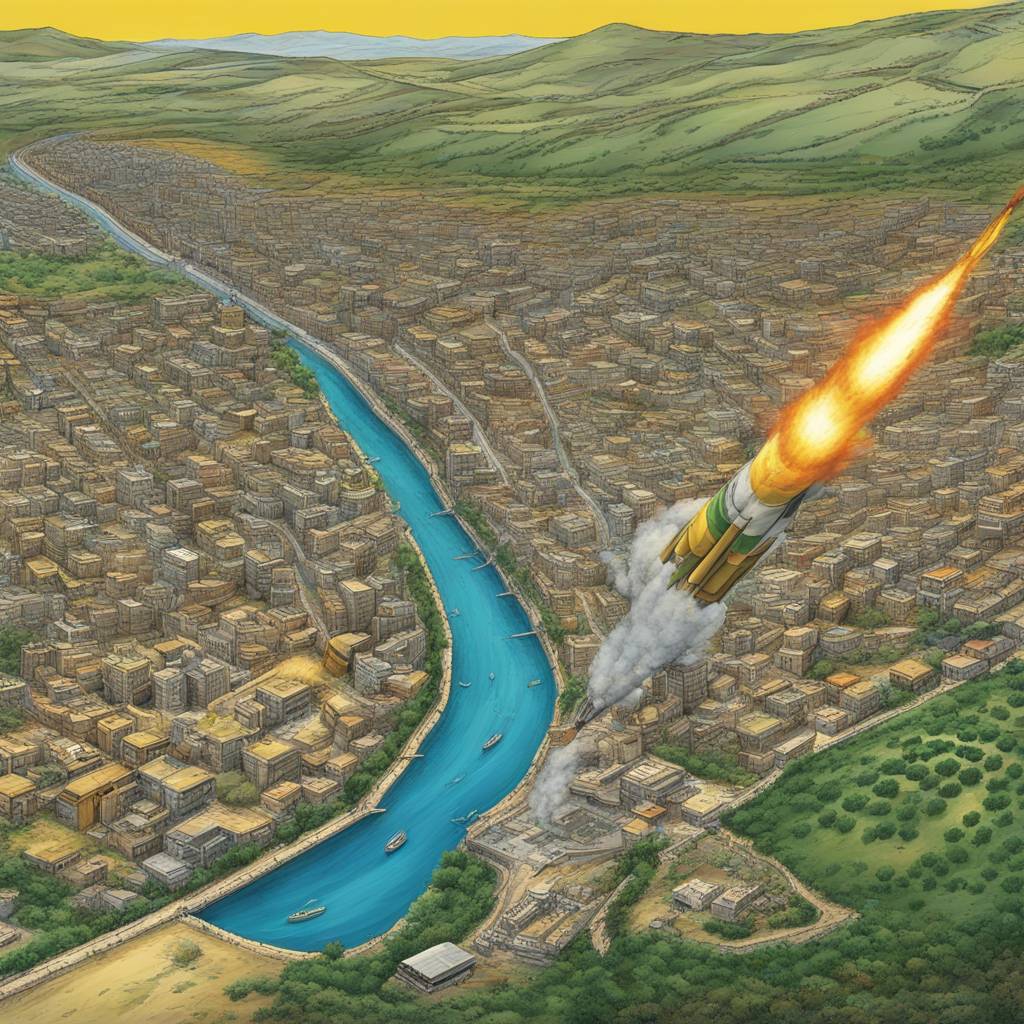Hezbollah fired rockets at towns in northern Israel in retaliation for Israeli airstrikes that killed nine people, including paramedics. No Israelis were injured in the rocket attack. The ongoing clash between Israel and Lebanon has raised concerns of a full-scale war, with recent airstrikes and rocket fire causing casualties on both sides. The Israeli military claimed to have killed 30 Hezbollah militants and destroyed numerous military sites to push the group away from the border. The escalation of violence has prompted alarm in Washington and at the United Nations, with efforts being made to restore calm through diplomatic means.
The U.S. government, including President Biden, is closely monitoring the situation and working to halt the fighting in Lebanon. Tens of thousands of people have been displaced by the conflict, and efforts are being made to facilitate their return home. Hezbollah fired a barrage of rockets at civilian targets in Israel, including the use of Burkan rockets for the first time. The group has previously used anti-tank missiles and aims to keep Israeli divisions occupied to ease pressure on Gaza. Hezbollah leader Hassan Nasrallah has stated that the attacks on the border will only stop when Israel ends its offensive in Gaza.
Lebanese state media reported that 10 paramedics were among those killed in the recent airstrikes by Israel. The U.N. peacekeeping force in south Lebanon, known as UNIFIL, has called for an immediate ceasefire and a diplomatic solution to the conflict. The fighting has resulted in civilian and military casualties on both sides, with the death toll continuing to rise. The international community is working to prevent further escalation and find a peaceful resolution to the conflict.
The use of heavy warheads and civilian targets in the rocket attacks marks a significant escalation in the ongoing conflict between Israel and Hezbollah. The situation remains tense, with fears of a full-scale war breaking out. Efforts are being made by the U.S. government and international organizations to de-escalate the situation and prevent further loss of life. The impact of the conflict on civilians, including those displaced by the fighting, is of paramount concern, with calls for an immediate cessation of hostilities and a return to diplomacy.
The U.S. administration is actively engaged in efforts to restore calm along the Israel-Lebanon border and prevent further escalation of the conflict. The current violence has caused casualties on both sides and led to widespread displacement of civilians. International organizations, such as UNIFIL, are calling for an immediate ceasefire and a return to dialogue to resolve the underlying issues fueling the conflict. The use of heavy weaponry and attacks on civilian targets are further complicating the situation and increasing the risk of a broader war in the region.
The recent escalation of violence in Lebanon, including the use of heavy warheads in rocket attacks by Hezbollah, has raised concerns of a wider conflict involving Israel. The U.S. government is actively working to de-escalate the situation and prevent further loss of life. Efforts are being made to address the root causes of the conflict and find a diplomatic solution to restore peace and stability in the region. The impact of the violence on civilians, including those displaced by the fighting, is a major concern for the international community, with calls for an immediate cessation of hostilities and a return to dialogue.













